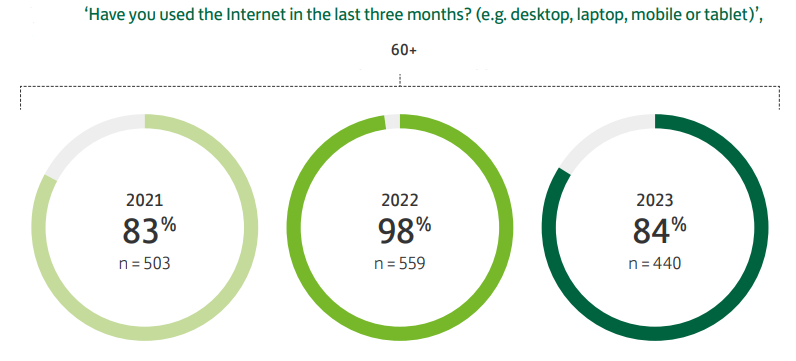In a surprising turn of events, Notebookcheck uncovered Google’s restrictive move during the Pixel 8 review embargo, preventing writers from easily installing benchmark apps like Geekbench 6. This raised eyebrows as it hindered the standard practice of assessing the AI performance of the Tensor G3 chip at the heart of Google’s latest Pixels. The controversy deepened as results from Geekbench 6, sideloaded by some reviewers, presented an unflattering picture of the Tensor G3’s capabilities, sparking debates about the reliability of Google’s claims.
Unearthing the Benchmark Block, Geekbench 6 Unleashes Unpleasant Truths
When Geekbench 6 introduced new testing areas, including a focus on machine learning and AI potential, it became a crucial tool for assessing the Tensor G3. Despite Google’s emphasis on AI performance, Pixel 8 reviewers faced obstacles in installing the benchmark app. Some enthusiasts sideloaded Geekbench 6, revealing less-than-impressive results both during and after the embargo period. While speculations about compatibility issues with Android 14 surfaced, they failed to explain successful sideloading and consistent results pre- and post-block.
John Poole, the visionary mind behind Primate Labs, the ingenious creators of Geekbench 6, provided his insight on the enigmatic circumstances surrounding the unavailability of the application during the embargo period.
Poole, in his commentary, regrettably fell short of elucidating the specific reasons for this temporary withdrawal, opting to dismiss any notion of compatibility issues. Consequently, the motives that prompted Google’s obstruction of the benchmark tool remain veiled in a cloak of mystery, deepening the intrigue that envelops the situation. Compounding the enigma is Google’s conspicuous silence on the matter, further contributing to the mystique that surrounds this perplexing episode.
Generative AI exposed, unveiling limitations in cloud reliance
A new layer was added to the controversy when YouTuber @Mrwhosetheboss exposed the Pixel 8’s reliance on a persistent internet connection for key AI-powered features. These features, incorporating generative AI techniques like Magic Editor, AI Wallpaper, and Best Take, were touted as being processed on the Tensor G3 chip during the launch. But, it became evident that Google off-loaded processing tasks to the cloud, challenging its narrative of an AI-first chip.
Google’s VP of Product Management emphasized Tensor G3’s upgrades for on-device generative AI in a blog post. But, testing by @Mrwhosetheboss debunked this claim, revealing the need for cloud processing due to the Tensor G3’s inadequacy in handling AI tasks locally. Arm’s explanation of AI performance, indicating the importance of strong CPU and GPU benchmarks, contradicted Google’s dismissal of traditional performance metrics.
As the Pixel 8 benchmark controversy unfolds, questions linger about Google’s transparency regarding the Tensor G3’s capabilities. The clash between benchmark results and Google’s AI-first narrative calls for a reevaluation of the importance of raw processing power in AI-centric devices. With generative AI revealing its reliance on cloud processing, the debate shifts to whether the Tensor G3 truly lives up to its AI promises or if it falls short in the realm of on-device AI capabilities. What does this controversy signify for the future of AI-centric devices, and will it reshape consumer expectations?
Amidst the growing scrutiny, consumers are left to ponder the implications for the broader landscape of AI-centric devices. Does this controversy mark a turning point in the industry’s pursuit of on-device AI capabilities, or will it lead to a recalibration of expectations? The clash between benchmarks and Google’s narrative sparks a broader conversation about the evolving role of raw processing power in shaping the next generation of smart devices. As the dust settles, the Pixel 8 benchmark controversy may serve as a catalyst for redefining the standards and transparency expected from tech giants navigating the cutting edge of artificial intelligence.



